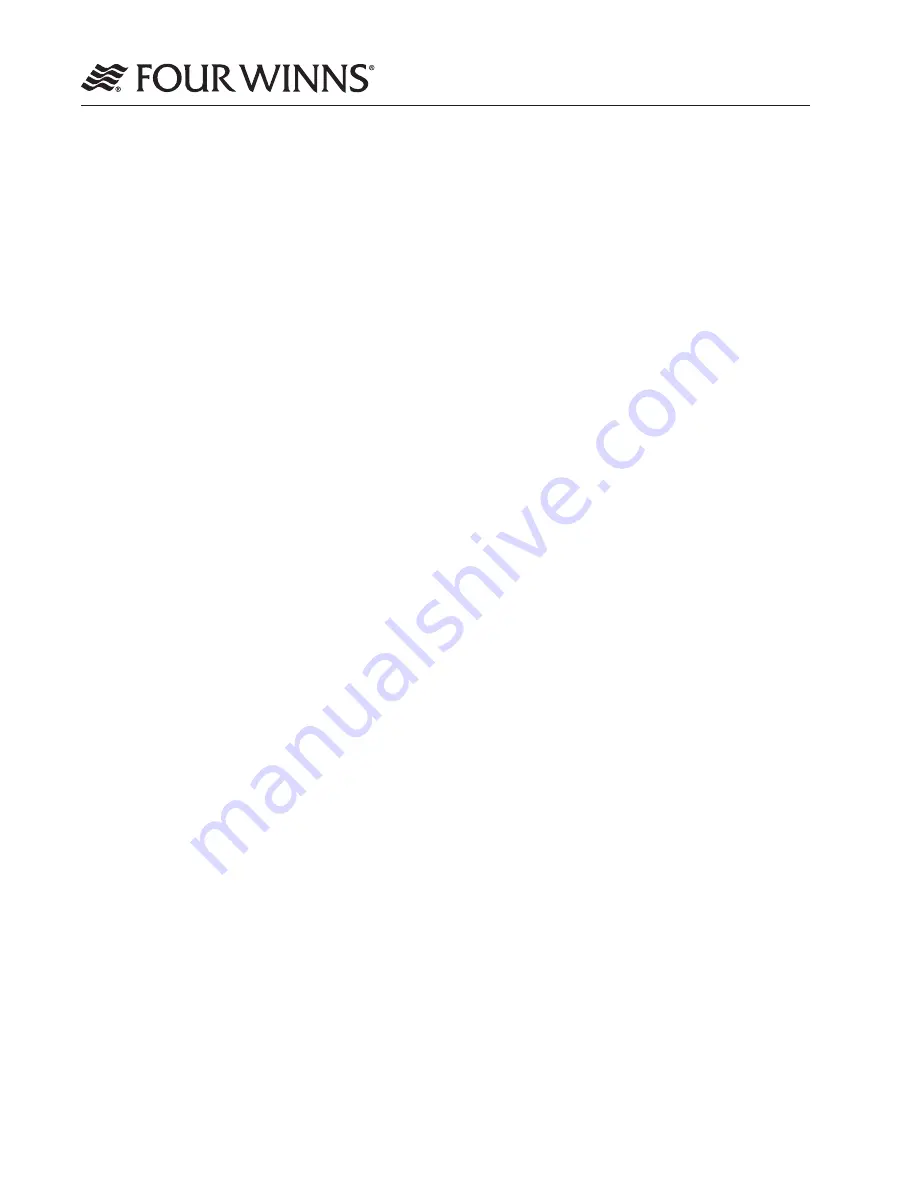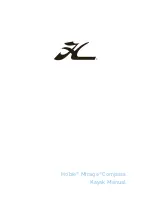
Owner’s Manual Page 168
Pre-Launch and Underway - Section S
Remember that it is easier to control a boat in reverse
because a boat steers from the stern. When backing
into a slip, back so that bow swings into the wind if
possible. You will have more control.
If possible, come in against the wind or current,
whichever is stronger. Approach the dock at a 30-45°
angle. As the boat nears the dock, slowly swing
parallel to it. Tie the bow line first; then the stern.
If wind or current is moving toward the dock, move
parallel to the dock further out. Let the wind or current
push you in. Tie the stern first, then the bow.
Use extreme caution if wind or current is from your
stern. Back in towards the dock slowly at a slight
angle with engine in slow reverse. Gently swing
parallel. Tie stern first, then the bow.
If the weather looks bad, use spring-lines from the
bow and stern to dock amidships of the boat. Tie up
on the downwind side of the dock. If the wind is
changeable, place fenders over the side between
the boat and the dock.
B. Mooring
After you have positioned your boat next to the dock,
you must secure it with mooring lines to keep it in
position. Mooring lines must be long enough to secure
your boat in any docking situation.
For example, dock lines should be at least 2/3 of the
length of your boat and the spring lines should be at
least the full length of your boat. The size (diameter)
of your line depends on the size and weight of your
boat. The following is an approximate guide. See your
Four Winns dealer for recommendations.
Line Diameter
Boats under 20 feet =
3/8”
Boats 20 to 30 feet =
1/2”
Boats 30 to 40 feet =
5/8”
Boats 40 to 60 feet =
3/4”
Boats over 60 feet =
1”
Note
: If your boat is heavy for its size, consider going
up one size in diameter.
An eye splice at the end of each line works well with
bow or stern cleats.
The mooring lines you will use most often are the
bow line, the stern line, and spring lines as shown
on Figure S3. Each line has a specific purpose.
The bow line and the stern line secure your boat’s
bow and stern. The two spring lines keep your boat
from moving forward or backward when you are
moored alongside a dock.
If you are mooring your boat for a short time, bow and
stern lines may be the only lines you will need. If you
are mooring your boat for a longer time or the currents
are swift, you should use spring lines. The stern spring
line leads from the boat’s stern cleat forward to the
piling or cleat on the dock. The bow spring line leads
from the bow cleat aft to the dock.
If you are mooring your boat in a slip, bow and spring
lines, port and starboard, will keep your boat in
position.
Note:
If tides are a consideration, be sure to leave
slack in the lines to make up for the rise and fall of the
water while your boat is docked.
Summary of Contents for V458
Page 1: ...V 4 5 8 O W N E R S M A N U A L 0 9 0 2 8 8 6 ...
Page 2: ......
Page 4: ...Table of Contents Owner s Manual Page 1 Table of Contents ...
Page 5: ...Owner s Manual Page 2 Table of Contents ...
Page 6: ...Table of Contents Owner s Manual Page 3 ...
Page 7: ...Owner s Manual Page 4 Table of Contents ...
Page 8: ...Table of Contents Owner s Manual Page 5 ...
Page 9: ...Owner s Manual Page 6 Table of Contents ...
Page 10: ...Table of Contents Owner s Manual Page 7 ...
Page 11: ...Owner s Manual Page 8 Table of Contents ...
Page 52: ...Owner s Manual Page 50 Warranty and Service Section D ...
Page 54: ...Owner s Manual Page 52 Warranty and Service Section D ...
Page 94: ...Owner s Manual Page 92 Fuel Systems Section I Figure I9 Fuel Valve System Components ...
Page 171: ...Owner s Manual Page 169 Pre Launch and Underway Section S Figure S3 Mooring Lines ...
Page 188: ......
Page 189: ...www fourwinns com ...
















































